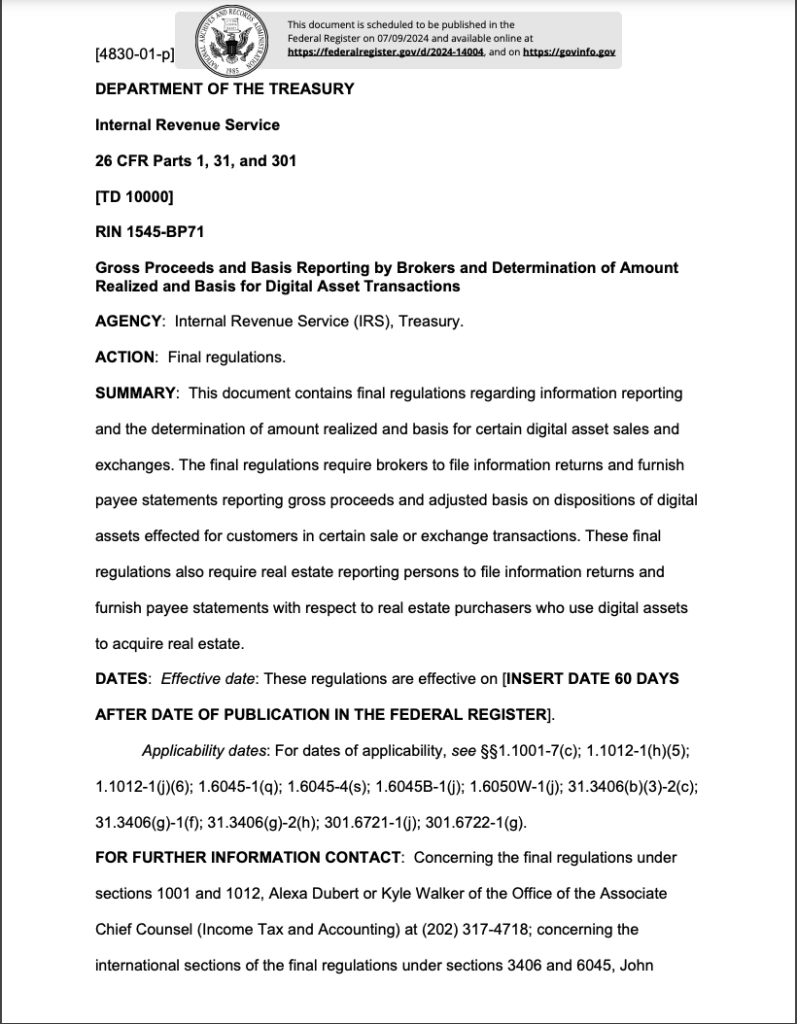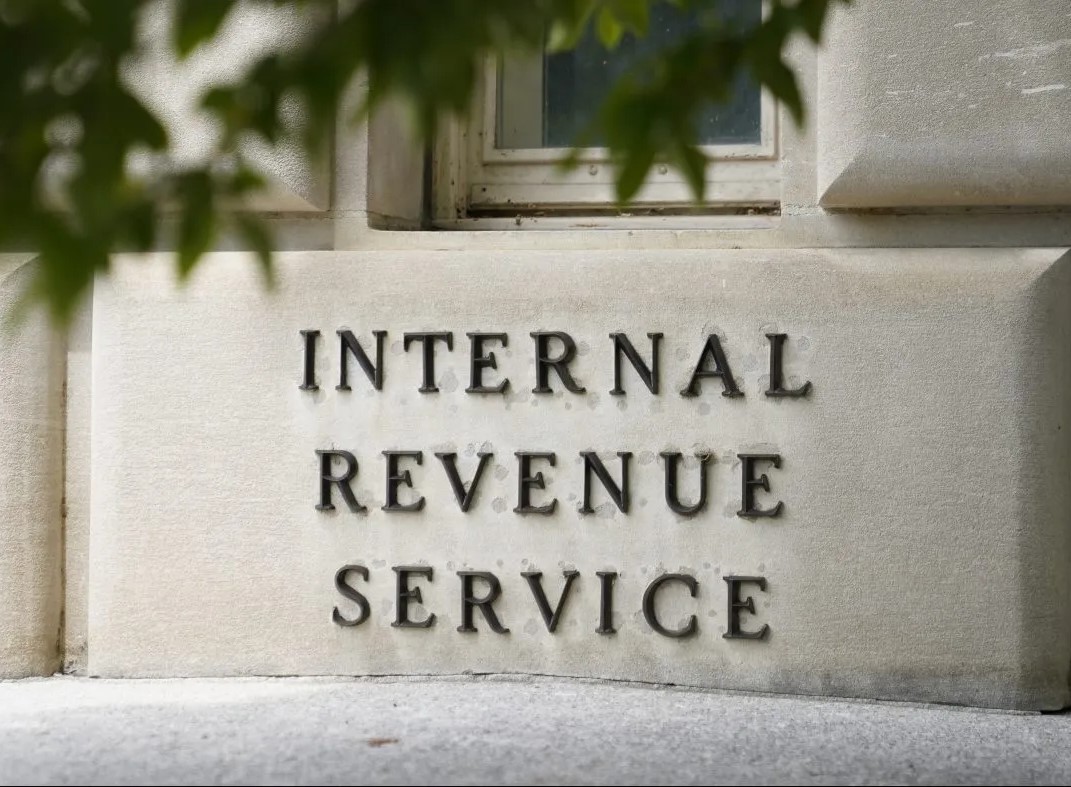The Internal Revenue Service (IRS) did not include decentralized exchanges or self-custodial wallets under its broker reporting requirements.
The final draft of the new crypto broker reporting requirements was disclosed by the United States Internal Revenue Service (IRS) on June 28. The agency also clarified how the latest rule changes will impact the industry participants.
Decentralized exchanges and self-custody wallets will not be subject to the new reporting standards per the IRS’s new reporting guidelines.
The IRS clarified in its most recent update that it has evaluated the extensive comments and complaints from industry respondents and has determined that it requires “more time to consider the nuances” of completely decentralized networks.
Additionally, the government agency’s new reporting requirements do not exempt stablecoins and tokenized real-world assets, which will be regarded as other digital assets.

IRS Commissioner Danny Werfel expressed his concern regarding the necessity of addressing the tax gap caused by digital assets and the potential noncompliance of high-net-worth individuals in the aftermath of the recent rule changes:
“We need to make sure digital assets are not used to hide taxable income, and these final regulations will improve detection of noncompliance in the high-risk space of digital assets. Our research and experience demonstrate that third-party reporting improves compliance.”
Werfel’s IRS colleague, criminal investigation chief Guy Ficco, previously expressed this motivation, predicting that there would be a rise in crypto tax evasion during the 2024 tax season.
Industry advocates raise concerns over
In the past year, the IRS’ proposed broker rules have been met with significant opposition from industry advocacy groups, including The Blockchain Association and The Chamber of Digital Commerce.
The Blockchain Association raised the alarm in 2023 and objected to the IRS’ proposed broker reporting requirements, citing the fundamental incompatibility between the proposed rules and decentralized finance networks.
The Blockchain Association has recently reiterated its apprehensions regarding the agency’s proposed broker provisions and the excessive regulatory burdens and compliance costs that the rules would impose on industry firms, market participants, and the IRS.
The advocacy group contended that the regulations would incur $256 billion in annual compliance costs and violate the Paperwork Reduction Act.
Immediately following The Blockchain Association’s expression of apprehension regarding the regulatory burdens associated with the submission of billions of 1099-DA tax forms, The Chamber of Commerce reiterated the complaints, asserting that the tax compliance forms could potentially result in privacy concerns.



